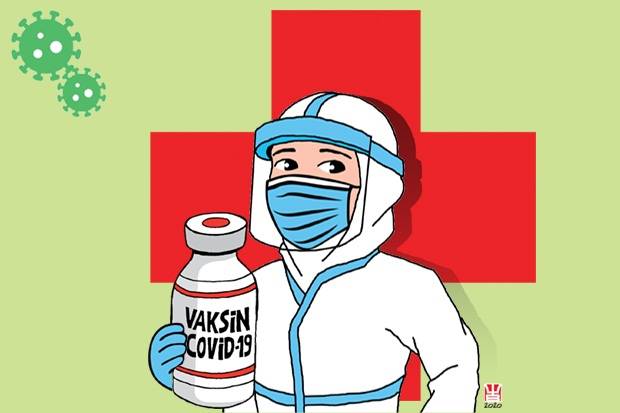Supporting Various Government Policies Overcoming Covid-19
By: Made Raditya )*
The government is trying its best to control the Covid-19 pandemic, including by issuing a policy for the Enforcement of Community Activity Restrictions (PPKM) and a call to comply with the Health Protocol (Prokes). The public must support the sharing of government policies so that the handling of the Corona virus achieves maximum results
Until now, the Covid-19 pandemic is still happening in Indonesia and the world. The government also continues to innovate, conduct academic studies, and issue strategic policies to control the infectious virus. One of the forms of government intervention is to tighten people’s mobility, especially ahead of the Christmas and New Year (Nataru) momentum.
Coordinating Minister for Maritime Affairs and Investment Luhut Binsar Pandjaitan stated that the tightening was carried out because Indonesia was ready to face the year-end holidays. Already 76% of the people in Java and Bali have received the first vaccination, while 56% have received the second vaccination. PPKM will follow the current assessment and PPKM level 3 will be canceled, but there must be a tightening.
Tightening procedures include, malls may open but a maximum of 10 pm. The capacity is also only 75% of visitors, and all of them must scan the Peduli Protect application. So that only those who have been vaccinated can enter the mall. Similar rules also apply in tourist attractions, both in Java and other places. There are no barriers on the road, but people are expected to be self-aware so as to reduce mobility.
The tightening is done because the government is still dealing with Covid but is also thinking about other factors, namely the economy. As stated by President Jokowi, during a pandemic, you must be good at regulating gas and brakes. You should not be too hasty in tightening the Corona virus, but it will have a negative effect on the economy, because it will also affect the people’s financial capacity.
The public is very supportive of the government’s policies in dealing with Corona. It doesn’t matter that PPKM level 3 is canceled, but replaced with a tightening, so there will be no holiday euphoria at Christmas and New Years. Tightening is done so as not to increase Corona cases in Indonesia and to protect the public.
The economy and health cannot be contested because they are both important, and the public realizes that the government has gone all out in dealing with Corona since the beginning of 2020. To overcome the impact of the pandemic, it takes a lot of money. The economy must be restored without harming the health sector.
Now is the time to restore the economy, because during the Christmas and New Year holidays there will be many transactions in the market. This money circulation is expected because it can move the wheels of the economy in Indonesia again. So that the country’s financial situation becomes healthier and we can survive the threat of a terrible recession.
The increase in the economy certainly does not conflict with health, because all activities during the year-end holidays must comply with health protocols. Besides having to keep their distance and avoid crowds (because the maximum capacity for visitors in public places is only 75%), everyone must be disciplined to wear masks and wash their hands.
That way, during the year-end holidays there will be a balance between health and the economy. The circulation of money went smoothly and the Indonesian economy rose again. While the number of Corona patients in Indonesia has not increased, it can even be suppressed so that it does not reach 500 people per day.
The community supports tightening during the year-end holidays. They are no longer confused because there is a change in the title of the rule, because the point is the same. Everyone must be disciplined in health protocols during the Christmas and New Year holidays, when entering the Mall or elsewhere. The government has taken this policy so that all are safe from Corona while at the same time reviving the Indonesian economy.
)* The author is a contributor to the Press Circle and Cikini Students
